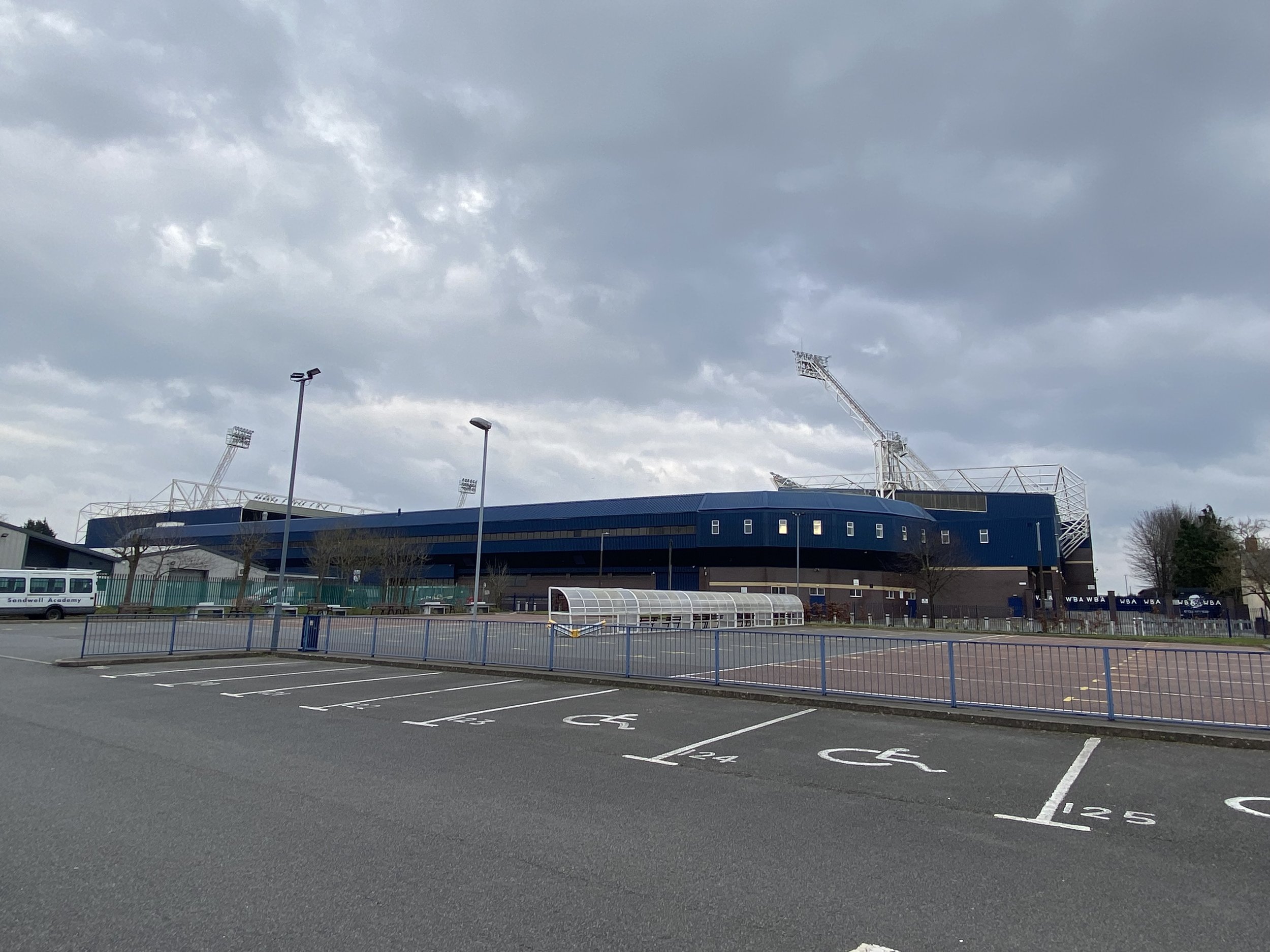The 7 questions Leicester City must answer to succeed in the Championship
A new season dawns. Not the season we dreamed of, but the season we deserve right now. James Knight looks at the key questions Leicester need to answer to make this a successful year.
The pre-season opened with a surge of optimism. Enzo Maresca’s appointment transformed the mood around the King Power and briefly swept away the doom that had covered the club for months.
Since those early, heady days of July, there have been more reasons for concern than we’d have liked. Misguided travel plans, inconvenient weather patterns, and a distinct lack of player turnover has all combined to temper (some) expectations going into the Championship season.
Leicester still have a lot to prove to convince us that they’ve changed. Here are seven questions they need to answer to convince us that this really is the dawn of a new era.
1. Is Enzo Maresca the One?
The first and most fundamental question, from which everything else follows: Is Enzo Maresca a good manager?
Everything about the man suggests he is good. All the players he’s worked with seem to love him. His words and actions since joining have struck exactly the right note, right up to visible annoyance with some of the club’s own nonsense over the summer.
The signings he’s made seem good and fit an obvious plan. The signs of his work over the summer are obvious in the way Leicester play now. He has, according to the man himself, been such an inspiration on the training pitch that he’s inspired six wantaway stars to remain.
But at this moment he remains an idea. His actual managerial experience is limited to a short spell in the Italian second division and he has no history of working in the second tier in England. If he turns out to be little more than a cosplay Pep Guardiola, Leicester are in trouble, as he has been handed free reign to overhaul the club and the staff. We can no longer even resort to the tried and tested method of handing big Micky Stowell the caretaker keys.
2. What’s plan B?
It’s possible that Leicester’s raw talent in the squad, combined with Maresca’s tactical genius, mean that we never need to resort to anything other than Plan A. But during a 46-game Championship season, and by the sheer fact of being Leicester City, it seems inevitable that we’re going to lose players to injury or be forced into changing our style in some matches to get results.
While the squad is still full of internationals, injuries to Maresca’s spine could cause problems because there isn’t anyone who can play the same way to replace them: the likes of Mads Hermansen, Ricardo Pereira, Conor Coady, and Harry Winks are vital to The Idea, yet their backups are Daniel Iversen, James Justin, Jannik Vestergaard, and Hamza Choudhury.
They might be good players (insert jokes here), but they aren’t capable of playing key roles in the Maresca system in the same way. The summer friendlies were all geared towards embedding the main tactical plan, which is fair enough, but it means we have no idea how Leicester might chase a game, or how we would cope with injuries to Ricardo and Winks in particular.
Coady’s absence has immediately thrown the question of leadership back into the spotlight. He has acted like the captain since day one, and when he did play in pre-season his role as a communicator and organiser was obvious. There’s no replacement for him in the squad, given Vestergaard’s main communication skill involves ringing up Danish journalists to give incendiary interviews. How does Maresca fill that void?
3. Can Leicester defend now?
Leicester got relegated last year because we conceded far too many goals. Only three teams in the Premier League let in more and one of those, Bournemouth, did so by conceding nine in one game early on. Arguably, improving the defence is the most critical job on Maresca’s desk going into the season.
Against Liverpool, admittedly a better team than your Plymouths and your Rotherhams, we conceded exactly the same sort of goals we have done for years: three after losing possession to be hit in transition and one from a set piece. Given that most opponents will sit back against Leicester this year, that cannot happen if the team is going to be successful.
Maresca built from the back with his new signings: he’s replaced the goalkeeper, two of the back four, and added Winks to the midfield. The issue is that those players were mainly brought in for how they fit our style with the ball, and the lack of physicality in the team remains.
Are we going to be good enough with the ball to restrict chances that way? That, presumably, is the goal. If we have all the ball, we aren’t going to give up many opportunities. But the first few games are going to be crucial, it’s easy to imagine serious angst in the crowd if a few corners and counters end up in the back of our net early on.
4. Who’s scoring the goals?
The last couple of years of Brendan Rodgers’ tenure were defined by a strange situation where Leicester would score a lot of goals without ever looking that good in attack. A lot of the reason was having players with a hot streak in them: Vardy has always been a streaky striker, Harvey Barnes and Kelechi Iheanacho have that gene as well.
Now Barnes, along with James Maddison, is gone, and Iheanacho could be gone. The style should create more consistent chances, but the finishers might not be there to convert them. A theme of pre-season has been how well Leicester have got players into the box, with at least five - the front three plus the two ‘number eights’ in and around the area.
The issue is who those five players have been. Along with Vardy, there’s some combination of Timothy Castagne, Marc Albrighton, Kasey McAteer, Wanya Marcal-Madivadua, Kiernan Dewsbury-Hall, Dennis Praet and Wilfred Ndidi. Last season, Burnley got 60 goals from their strikers and wingers, plus another 15 or so from midfield or (inverted) full back. It’s probably not a stretch to suggest those names aren’t bagging 75 between them.
The hope is that Vardy has another year in his legs at this level, that Patson Daka finally breaks through, and that Stephy Mavididi seamlessly slots in to English football. That’s a lot of hoping. Even then, it highlights the need for reinforcements in wide areas and in attacking midfield. Leicester’s continued abstention from a right winger can’t go on much longer.
5. Are we up for the fight?
Coventry is going to be the first test of how Leicester cope with being the biggest scalp in the division. A much bigger test might come the following week, away at Huddersfield, which - some offence intended to Huddersfield - will be the first time reality properly hits.
The Seagrave training complex is one of the best in the world, never mind the division. Huge chunks of our squad spent the early part of summer in international action all over the globe. In pre-season we’ve been jet-setting off to play friendlies against Premier League sides in Asia. We’ve been acting, in other words, like we’re still a Premier League team.
The inconvenient fact is that we aren’t, and once the football starts that is going to become apparent very quickly. On Wednesday night, we’ve got to play a Carabao Cup first round game away at Burton Albion. The first two away games in the league are the aforementioned Huddersfield followed by Rotherham. Those two teams are going to want to stick it to us, in part because of paragraphs like this.
A team that has been mentally weak for years needs to be much tougher this time around. We’re going to have to cope with the pressure of being favourites for the league, and the fact every opponent will be up for turning us over. Southampton, on Friday night, succumbed to the first set piece bombardment they faced from a Sheffield Wednesday side twice the size of them before regrouping and grinding out the win. Are we capable of doing the same?
6. What are we going to do about contracts?
Right now there are at least eight senior players whose contracts expire next summer: Ndidi, Iheanacho, Choudhury, Vestergaard, Praet, Vardy, Marc Albrighton and Alex Smithies.
We can probably write off the Smithies era at this stage, but the other seven are likely to feature in the squad against Coventry. Vardy and Albrighton are unlikely to want or be offered new deals but are going to stay for the final year. What about the rest?
Having been burned once by losing a bunch of assets for nothing, can the club afford to do the same thing again? If not, some decisions need to be made now, even if those players have a role to play in the team. The cold, clear-headed and probably correct decision is that Ndidi, Iheanacho, Vestergaard and Praet need to be sold this summer to fund the new attacking players we need.
Iheanacho is the one it pains us to sell, and there is an argument that Leicester could keep him and hope he signs a new contract if we get promoted. But with the Saudis on the rise, it’s going to be very difficult to compete with any contract offer in a year’s time, and we’ve already seen the risk of having players with no stake in the outcome of the season around.
7. Where do the misfits fit in?
Throughout Brendan Rodgers’ last year at the club, there were calls for a new manager to come in with fresh ideas and give the squad a clean slate. Maresca has undoubtedly done that. His decision to restore Vestergaard to the side might not be popular, but is evidence of a manager who genuinely has come in with a clear, unbiased mind.
The flip side of that approach is what it means for the players who don’t fit his system. We talked immediately after he joined about what the Guardiola-inspired style might mean for some of them, as it’s very demanding and requires particular skills in certain roles. On top of that, Guardiola himself is notorious for suddenly ostracising players who were previously good, and all his lieutenants have followed suit.
At Leicester, this problem has been made more acute by the fact some of the players on the outside looking in are new signings. Harry Souttar is the obvious example, while Victor Kristiansen hasn’t featured much either. Are they, along with Justin and Iversen, happy to sit on the bench in a Championship side?
The same applies to other names who have remained on the fringes of the first XI despite dropping down a division. Wilfred Ndidi, Boubakary Soumare, Patson Daka, Kelechi Iheanacho, even Luke Thomas, who is potentially now third choice at left back behind Kristiansen and Callum Doyle - fourth, while Timothy Castagne remains at the club.
Are these players content to remain outside the first team? Are they going to leave? If they stay, how does that affect the mentality of the squad? Maresca seems to have immediately inspired buy-in to his methods and style, but will this remain in the depths of winter when you’re on the bench away at Plymouth?




